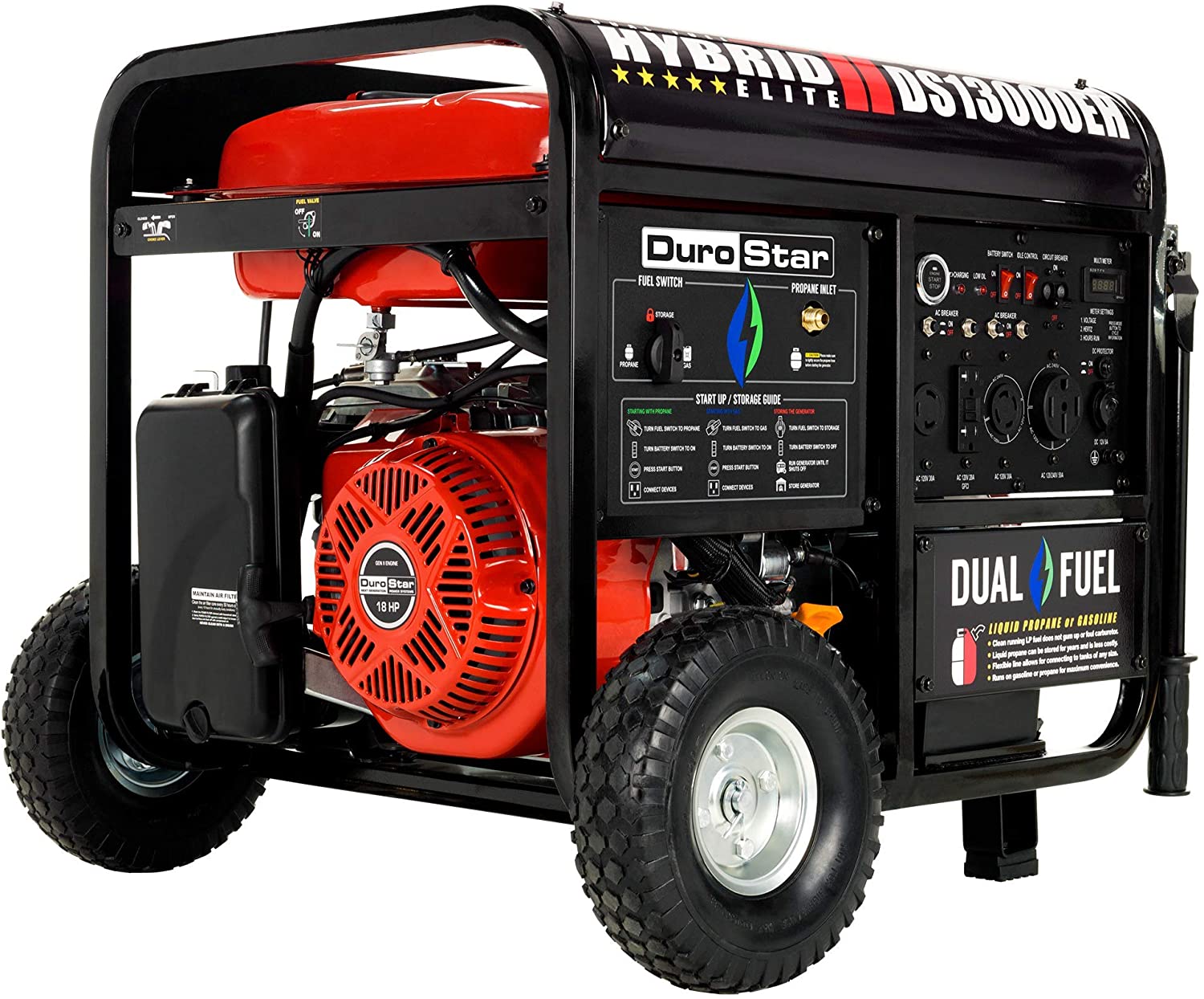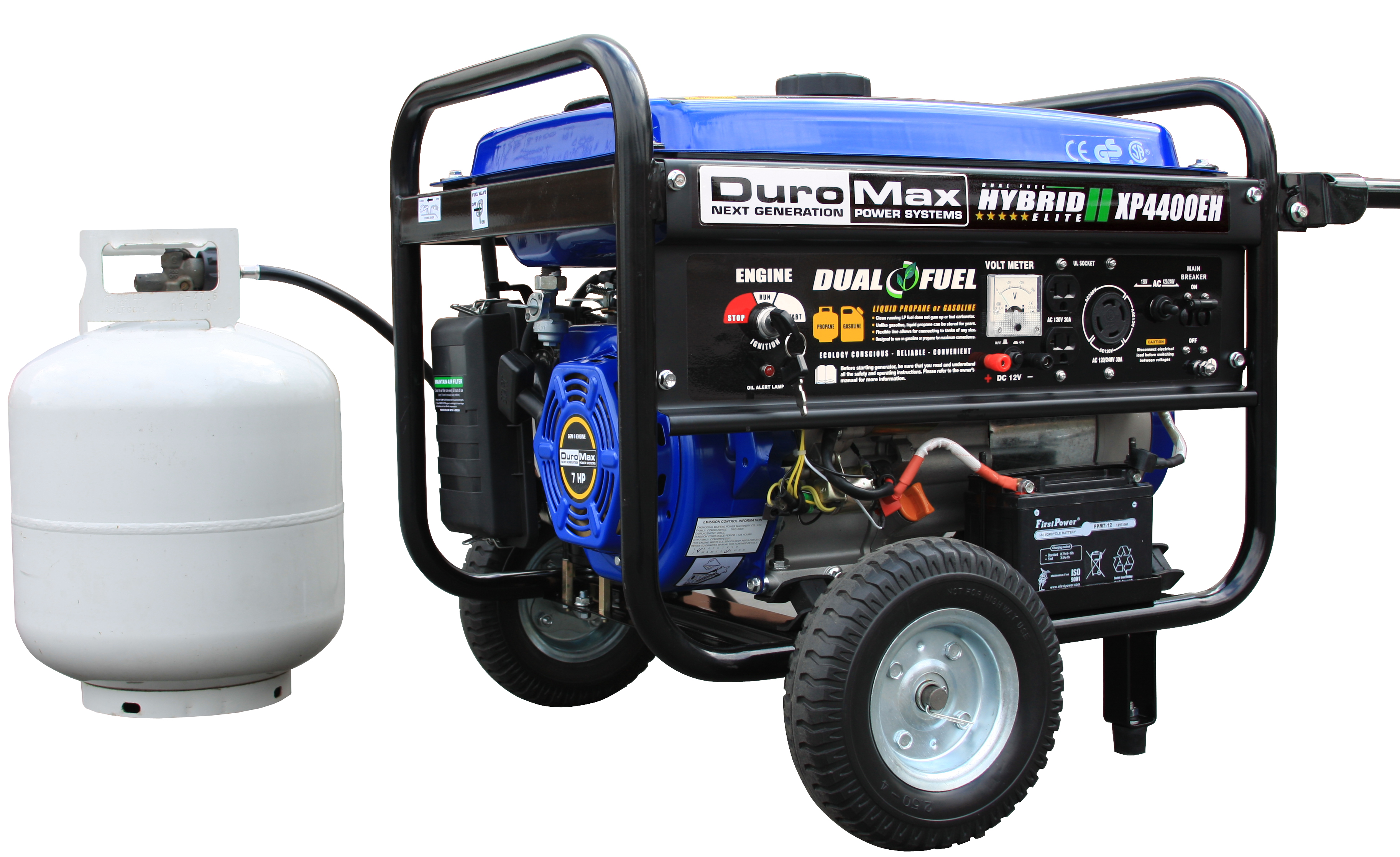Propane generator for off grid living – Propane generator for off-grid living: Imagine a life unbound by power grids, a sanctuary powered by the quiet hum of your own generator. This isn’t just about independence; it’s about embracing a resilient lifestyle, where energy security is in your hands. We’ll explore the world of propane generators, from choosing the perfect model to mastering fuel management and seamlessly integrating them into your off-grid power system.
Discover how to create a sustainable, reliable, and surprisingly affordable energy solution for your off-grid haven.
This guide dives deep into the practical aspects of propane generators for off-grid living, addressing everything from selecting the right generator based on your energy needs to maintaining it for optimal performance and longevity. We’ll cover safety procedures, cost analysis, environmental considerations, and even the integration of propane generators with other renewable energy sources, like solar panels, to create a truly self-sufficient power setup.
Propane Generator Types for Off-Grid Use
Embarking on off-grid living requires a reliable power source, and propane generators offer a compelling solution. Their quiet operation, relatively clean emissions, and readily available fuel make them an attractive alternative to gasoline or diesel generators, especially in remote locations. Choosing the right propane generator, however, depends on understanding the different types available and their suitability for your specific needs.Propane Generator Models Compared
Obtain direct knowledge about the efficiency of off grid living reddit through case studies.
Portable Versus Stationary Propane Generators, Propane generator for off grid living
The choice between a portable and a stationary propane generator hinges primarily on your power needs and the level of permanence desired. Portable generators, typically smaller and lighter, offer flexibility. They can be easily moved to power different areas of your property or even transported to other locations. However, their smaller size often translates to lower power output and shorter run times.
Stationary generators, on the other hand, are larger, more powerful, and designed for continuous operation. They are permanently installed and usually wired directly into your off-grid system, providing a more robust and reliable power source. Consider the scale of your off-grid setup; a small cabin might benefit from a portable unit, while a larger homestead would likely necessitate a stationary model.
Key Features to Consider When Selecting a Propane Generator
Selecting the right generator requires careful consideration of several key features beyond portability. Power output (measured in kilowatts) must match your energy demands. Consider the wattage of all your appliances and add a safety margin. Fuel efficiency (hours of runtime per gallon of propane) directly impacts operating costs and the frequency of fuel refills. Lower noise levels (measured in decibels) are crucial for peaceful off-grid living, particularly if the generator will be located near your dwelling.
Finally, features like automatic voltage regulation (AVR) ensure stable power output, preventing damage to sensitive electronics.
Propane Generator Specifications
The following table provides a comparison of several representative propane generator models, highlighting their power output, fuel efficiency, and noise levels. Note that these are approximate values and can vary depending on the specific model and operating conditions. Always consult the manufacturer’s specifications for precise details.
| Model | Power Output (kW) | Fuel Efficiency (hours per gallon) | Noise Level (dB) |
|---|---|---|---|
| Generic Portable Model A | 3.5 | 8-10 | 65-70 |
| Generic Portable Model B | 5.0 | 6-8 | 70-75 |
| Generic Stationary Model A | 10.0 | 12-15 | 75-80 |
| Generic Stationary Model B | 15.0 | 10-12 | 80-85 |
Integrating Propane Generators into Off-Grid Power Systems

Seamlessly integrating a propane generator into your off-grid electrical system requires careful planning and execution. This process ensures a reliable and safe power supply, complementing other renewable sources or acting as a primary backup. Understanding the intricacies of wiring, safety protocols, and the roles of inverters and transfer switches is crucial for a successful integration.
Connecting a Propane Generator to an Off-Grid Electrical System
Connecting your propane generator involves several key steps, beginning with a proper understanding of your system’s voltage and amperage requirements. Improper wiring can lead to serious damage or even fire. It’s essential to use appropriately sized wiring and connectors, adhering to all local electrical codes and safety regulations. A qualified electrician should always be consulted for complex installations.
The generator should be connected to a dedicated circuit breaker panel, ideally separate from the main off-grid panel. This isolation prevents backfeeding into the solar or battery system, a significant safety hazard.
The Role of Inverters and Transfer Switches
Inverters convert the direct current (DC) produced by the generator into alternating current (AC), the type of power most household appliances use. Transfer switches automatically redirect power from the generator to your home’s electrical system when the primary power source (solar, batteries) is unavailable or insufficient. They prevent backfeeding and protect both your appliances and the generator itself.
A properly sized inverter is critical; undersized inverters can overload and fail, while oversized ones can be inefficient. Transfer switches come in various types, including manual and automatic models, each with its advantages and disadvantages based on system complexity and budget. A properly installed transfer switch is essential for safe and efficient operation.
Integrating a Propane Generator with Solar Panels and Batteries
A hybrid system combining propane generators, solar panels, and batteries offers the ultimate in off-grid power resilience. Solar panels provide clean energy during the day, charging the batteries. The batteries store this energy for nighttime use or periods of low solar irradiance. The propane generator acts as a backup, automatically kicking in when battery levels drop below a predetermined threshold, ensuring continuous power supply.
This hybrid system prioritizes solar and battery power, using the generator only when necessary, minimizing fuel consumption and environmental impact.
Hybrid Power System Flow Chart
The following description illustrates the power flow in a hybrid system. Imagine a simple diagram. At the top, we have the solar panels, feeding power into a charge controller. The charge controller regulates the flow of electricity from the solar panels to the battery bank. The battery bank is the central energy storage, supplying power to an inverter.
The inverter converts the DC power from the batteries to AC power for household use. A transfer switch monitors the battery bank’s charge level. If the charge drops below a set point, the transfer switch activates, connecting the propane generator to the inverter, providing supplemental AC power. This ensures continuous power supply, even during periods of low solar output or high energy demand.
The generator’s output is also monitored and controlled by the transfer switch to prevent overloading the system. This ensures a stable and reliable power supply for the home, minimizing reliance on the generator while ensuring a constant power source.
Environmental Considerations of Propane Generators in Off-Grid Settings
Propane, a relatively clean-burning fossil fuel, presents a complex environmental picture when used for off-grid power generation. While offering a reliable alternative to other energy sources, its impact on the environment must be carefully considered, balanced against the benefits it provides in remote or isolated locations. Understanding this impact is crucial for responsible off-grid living.The primary environmental concern surrounding propane generator use is greenhouse gas emissions.
Propane combustion releases carbon dioxide (CO2), a potent greenhouse gas contributing to climate change. While propane’s CO2 emissions are lower per unit of energy produced compared to gasoline or diesel, they are still significant and contribute to the overall global carbon footprint. Furthermore, incomplete combustion can lead to the release of other pollutants such as carbon monoxide (CO), nitrogen oxides (NOx), and particulate matter (PM), negatively impacting local air quality and potentially human health.
Greenhouse Gas Emissions from Propane Generators
Propane generators, while cleaner burning than gasoline or diesel counterparts, still contribute to greenhouse gas emissions. The amount of CO2 released depends on the generator’s efficiency and the amount of propane consumed. For instance, a less efficient generator will release more CO2 per kilowatt-hour (kWh) of electricity produced compared to a more efficient model. Offsetting these emissions through carbon sequestration projects or investing in renewable energy sources alongside propane generators can help mitigate their environmental impact.
Consideration should also be given to the lifecycle emissions of propane, from its extraction and processing to its transportation and eventual combustion. Efficient generator operation and regular maintenance are crucial in minimizing emissions.
Comparison with Other Off-Grid Power Sources
Compared to other off-grid power sources, propane generators occupy a middle ground environmentally. Solar and wind power are inherently cleaner, producing little to no greenhouse gas emissions during operation. However, their intermittent nature and dependence on weather conditions necessitate battery storage systems, which have their own environmental impacts associated with manufacturing and disposal. Hydropower, while renewable, can have significant ecological consequences depending on the scale and location of the dam.
The environmental footprint of each off-grid power source needs to be evaluated holistically, considering factors beyond just greenhouse gas emissions.
Strategies to Minimize Environmental Impact
Minimizing the environmental impact of propane generators in off-grid settings requires a multi-pronged approach. Selecting high-efficiency generators significantly reduces fuel consumption and, consequently, greenhouse gas emissions. Regular maintenance ensures optimal combustion, minimizing the release of pollutants. Investing in proper ventilation is critical to prevent the accumulation of CO, a deadly gas. Exploring hybrid systems, integrating propane generators with solar or wind power to supplement energy needs, can reduce reliance on propane and lessen its environmental burden.
Responsible propane sourcing, opting for suppliers with sustainable practices, also plays a role. Finally, exploring options for capturing and utilizing waste heat from the generator for domestic hot water or space heating can improve overall energy efficiency.
Embarking on off-grid living with a propane generator is a journey of self-reliance and sustainable energy. By understanding the nuances of generator selection, fuel management, and system integration, you can create a reliable and efficient power solution tailored to your unique needs. This isn’t just about powering your appliances; it’s about powering your dreams of a life lived on your own terms, free from the constraints of the grid.
Take the leap, and discover the freedom and peace of mind that comes with off-grid energy independence.
Questions and Answers: Propane Generator For Off Grid Living
What are the typical running costs of a propane generator?
Running costs depend heavily on usage, propane prices, and generator efficiency. Expect variations, but budgeting for fuel and occasional maintenance is crucial.
How long does a propane tank last with a generator?
This varies drastically based on generator size, usage, and tank capacity. Always check your generator’s fuel consumption rate and plan accordingly.
Can I run my entire house on a propane generator?
It depends on your home’s energy consumption. Smaller homes with modest needs are more feasible. A professional assessment is recommended.
Are propane generators noisy?
Noise levels vary widely between models. Some are quieter than others. Consider sound dampening options if noise is a major concern.


